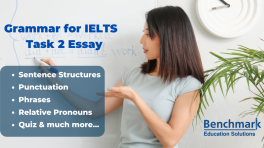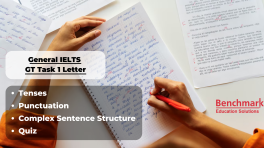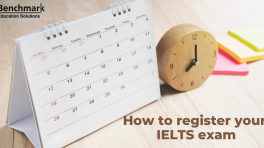

Education and schools is a common topic of discussion both in general life and in the IELTS test. This article provides you with the required vocabulary for the IELTS exam. This section is focused on the words related to education, schools, and studying. The IELTS vocabulary is divided into different sections and there are exercises for you to practice what you have learnt.
1. School Subjects
The vocabulary given below is applicable in both writing and speaking sections.
You may be asked speaking cue-card, such as what was your favorite subject at school?
Similarly, the essay topic could be – Some people believe schools should teach science and mathematics only. Do you agree or disagree?
- mathematics / math’s (UK) / math (USA)
- science
- biology
- chemistry
- physics
- English
- Spanish
- French
- physical education (PE)
- history
- geography
- art
- music
- IT ( Information technology)
** School subjects are not capitalised unless they are proper nouns such as languages. However, if you are mentioning a specific class or course title then you should use a capital letter. For example, Calculous 3 or The Ancient History of Peru would both require capital letters.
| Exercise 1 |
- chemistry
- art
- music
- PE
- French
- physics
- geography
- history
2. Educational Establishments
- Kindergarten / Pre-school / Nursery (UK) – Below 5 years
- Primary school (UK) / Elementary school (USA) – 5-11 years
- Secondary school (UK) / High school (USA) – 11 – 16
- College – In the UK a college can be attended from 16 years upwards and offers further education courses that are not usually of degree level. In the US a college offers degrees and would be known as a university in UK English.
- University – 18 years and upwards
3. Higher Education Vocabulary
Below are some key nouns and verbs related to university and higher education.
- Apply for Harvard – To submit an application to study Harvard
- BA – Bachelor of Arts
- BSc – Bachelor of Sciences
- Campus – The location and grounds of a university.
- Career prospects – The job opportunities a university course can provide upon graduation.
- Degree – A 3- or 4-year university course
- Dissertation/Thesis – A long essay or research project written in the final year of university.
- Distance learning – Taking part or all the course via the internet from a different location to where the school is based.
- Enroll in – To register for a course at university.
- Faculty – A university department or the members of teaching staff. The students can also be part of the faculty and are often known as ‘faculty members’.
- Give a presentation – To speak on a particular topic in front of the class and lecturers.
- Graduate – (verb) To finish university / (noun) A person who has finished university.
- Lecture / Lecturer – A class at university / The ‘teacher’ at university.
- MA / MSc – Master of Arts / Master of Sciences
- PhD – Doctor of Philosophy
- Scholarship – A payment or discount to support a student’s education, usually because the student is talented or has shown academic promise or excellence.
- Seminars – Small group classes where students and the teacher discuss topic.
- Semester – The period when university is open and giving classes
- Student loan – The financial assistance provided to university students.
- To drop out – To leave or quit university.
- To lecture in English / To give a lecture of English – To teach English / To teach an English class
- To read French – To study French at university.
- Tutorials – Small group classes or one on one classes. Often used to assist struggling students with a particular topic.
- Undergraduates – People currently studying at university.
4. Higher education vocabulary exercise
Use no more than two words from the vocabulary above to complete the sentences. You may need to change the tense of the words.
| Exercise 2 |
- Giving presentations
- Student loan
- Lecturer
- Scholarship
- Dropped out
- Enrolling in
- Career prospects
- Dissertation / Thesis
5. Phrasal Verbs related to education
There are many phrasal verbs related to education’ below are some of the commonly found ones in the IELTS exam.
Be into – To be interested in a topic
Fall behind – To miss deadlines or not complete work on time
Hand in – To submit a piece of work
Hand out – To distribute
Put off – To delay something
Read over – Read something from beginning to end, often to check for errors.
Take in – To understand something
Take up – To start learning something or engaging in an activity
Type up – Transfer written notes to digital form on a computer
For more practice, visit IELTS vocabulary for communication.














